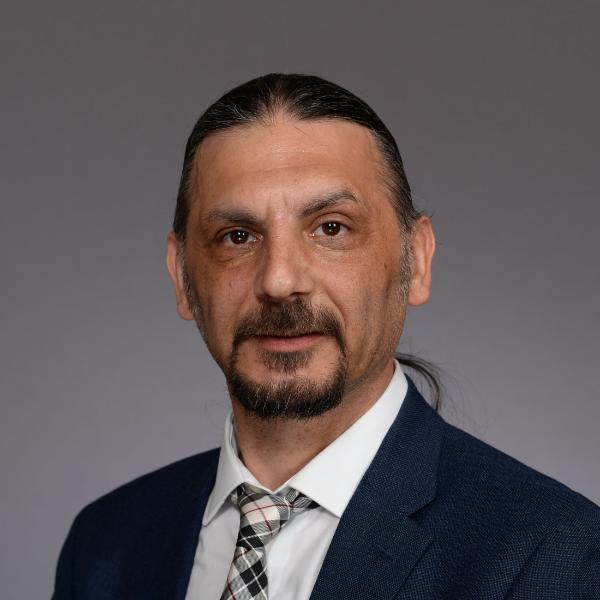
Ercument Dirice, M.S., Ph.D.

Ercument Dirice, M.S., Ph.D., is assistant professor of pharmacology at New York Medical College. As a research fellow and associate at Joslin Diabetes Center and an instructor at Harvard Medical School, Dr. Dirice contributed to several breakthroughs in the diabetes field. In 2019, he joined the NYMC Department of Pharmacology.
Dr. Dirice has a broad background in β-cell biology with specific training and expertise in rodent and human islet biology. The Dirice Lab mainly focuses on exploring the mechanisms and candidate molecules regulating insulin secreting pancreatic beta-cell survival, regeneration, and their resistance to stress-mediated cell death. More specifically, the Dirice Lab is interested to provide proof-of-principle that β-cell heterogeneity plays a critical role in pancreatic islet β-cell resistance cellular stress/death and to uncover the cellular and molecular basis of the regulation of beta cell mass by G protein-coupled receptors.
Education
- M.S., Medical Genetics, Akdeniz University
- Ph.D., Medical Genetics, Akdeniz University
- Postdoc., Research Fellow, Joslin Diabetes Center/Harvard Medical School
- Postdoc., Research Associate, Joslin Diabetes Center/Harvard Medical School
Honors and Awards
- 2023: Deans Faculty Award – “Rising Star”
- 2022: Deans Faculty Award – “Honorable Recognition”
- 2022: JDRF-SRA grant Award 2022-2025 – $750,000
- 2020: Integrated Islet Distribution Program Islet Award Initiative
- 2019: JDRF Transition award
- 2017: ADA Young Investigator Travel Grant Award
- 2014: Award of Scientific Contribution, 50th National Diabetes Meeting, Turkey
- 2013: JDRF Advanced Research Grant
- 2013: JDRF Advanced Research Grant
- 2011: Altan Gunalp Medical Research Award-12th National Medical Biology and Genetic Congress
- 2010: JDRF Research Grant
- 2010: Best Scientific Publication at 46th National Diabetes Meeting, Turkey
- 2009: Diabetes Research Fellowship – Diabetes, Obesity and Nutrition Society, Turkey
- 2009: Young Investigator Award – 11th European Congress of Endocrinology
- 2009: Novartis Science Award
- 2009: Poster Award 1st place – 6th Metabolic Syndrome Symposium, Turkey
- 2009: Best Poster Award – 3rd International Congress of Molecular Medicine
- 2009: Appreciation Letter – Rectorate of Akdeniz University
- 2009: Cover Award – Human Gene Therapy Journal
- 2009: Altan Gunalp Medical Research Award-11th National Medical Biology and Genetic Congress
- 2004: Young Investigator Award, XXXI. National Hematology Congress, Turkey
- 2002: BAYG_Grant – National Science & Technology Council of Turkey (TUBITAK)
- 2000: 1st place graduation – Akdeniz University, Biology Division
- 2000: Honorary Graduate – Akdeniz University, Faculty of Arts and Sciences
Research
Despite the widespread belief that beta cells are completely lost in the latter stage of type 1 diabetes (T1D), this is not always true. Evidence shows that patients with long-term T1D (>50 years) exhibit persistent insulin-positive beta cells that are able to survive and even replicate. The major thrust of the Dirice Lab is to elucidate the role of heterogeneity in beta cells and their vitality and dysfunction, particularly in diabetes. Of acute interest is the utilization of naturally occurring mechanisms regulating beta cell survival and their resistance to stress-mediated apoptosis. Certain beta cell subpopulations which uniquely facilitate specialized tasks to adapt or protect themselves during different physiologic and pathophysiologic conditions have the potential to be harnessed to develop novel therapeutic approaches that protect against beta cell loss; the characteristic phenomenon in both type 1 and type 2 diabetes (T2D). While recent studies have increased our understanding of β-cell heterogeneity, we need to further harness technological advances and smart study designs to characterize and exploit β-cell heterogeneity in therapies for T1D and T2D. Dr. Dirice has a long record of work in islet biology, especially in utilizing methods of research like transgenic mouse models, islet isolation and transplantation, and genetic analysis. His more recent research has contributed to the progression of understanding beta cell proliferation and survival through chemical and physiological means. In these works, he has reported the protection against diabetes from preemptive beta cell population growth, the anti-infiltration effect of HDAC3 on diabetic islets, and the role of DYRK1A in stimulation human beta cell reproduction.

